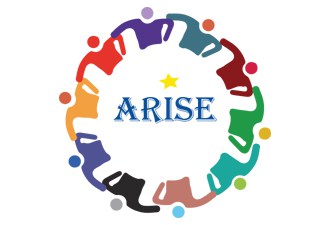Let me start this article with a thought-provoking question that I learnt on the Gallery of Modern Art in Glasgow: How do we tell if something is good, and who tells us that it is good? This question could be applied to any sphere of life, but in the context of this article, this question is referring to the concept of nationalism.
In the era of globalisation, migration is a phenomenon that challenges the obsolete notion of nationalism that has historically set clear boundaries between those who have membership rights and those who lack them (Tambini, 2001; Tarozzi and Torres, 2016). Thus, nationalism establishes new forms of racism and racial inequality towards the second group (Schuster and Solomos, 2002).
The twin towers attacks on the 11 of September of 2001 (BBC, 2011) was an event that impacted us all and led us to think that there needs to be a stronger nationalistic protection against those people who lack those membership rights. A wide range of politicians have used this call for security, this concern about migration and the need to preserve national identity in their campaigns and policies (Reni-Eddo-Lodge, 2017). Similarly, Trump’s biased comments towards migrant people (The New York Time, 2015) or the breaking point poster that incite anti-immigration and racist ideas on a Brexit landscape (Stewart and Mason, 2016) are enough evidence to suggest that nationalism is promoting fear and racial attitudes towards migrants.
During the ARISE project, I learnt that American people think that migrants are more a strength than a burden. However, what type of migrants? This type of statement referred to migrant people as ‘resources’ coming from countries of the Global North, since most of the current negative debate is largely focused on the South-North migration. This thinking is much in line with the concept ‘white nationalism’. Schuster and Solomos (2002) argue that people of colour who acquire formal citizenship in any of the countries of the Global North will not totally enjoy the same equality as the white population. With this idea, these authors wanted to create discussions around how nation-states socially perceive minorities within their borders.
For this purpose, Reni Eddo-Lodge (2017) talk about ‘fear of a black planet’. She raises the question that Western civilization and its migration policies are written for the purpose of maintaining their power and avoiding the loss of their privilege. This makes sense if we think that ‘racism is weaved into the fabric of our world’ (p.65), in our institutions, in the police and judicial system and even on our stereotypical perspectives. Therefore, we must think how this influence on the way nation-states’ migration policies are created and who benefits from them (Andreotti, 2011).
From this point of view, nationalism could be suggested to be an obsolete approach for the 21st century that socially organise people on different boxes depending on their skin colour, their culture or even the language they speak. When the members of those boxes start to move to other ones, it is perceived as a threat (Pohlmann, Yang and Lee, 2013). This ‘paranoid notion of threat’ (Weiner, 1992 in Côte and Mitchell, 2018) towards people that does not belong to our box creates a new form of racism. This form of racism has a lot to do with not being a member of a specific country, to not having a sense of belonging and identity for the country where you are born.
In conclusion, answering the question of the beginning of this article, how do we tell if nationalism is good, and who tells us that it is good? This challenging question might raise a wide range of opinions and controversial perspectives. Nevertheless, we might suggest that nationalism is based on old structures, that globalisation is going to make us reconsider the concept of living in just one place and therefore, we need to start thinking outside the box. We are the only ones who can tell if this national system is working by perceiving migrants beyond ‘just bodies’ (Singh, Flores, Mohseni and Hansen, 2016, p. 29), but as people with dreams and hopes. We are the only ones capable of perceiving the damage and the great amount of innocent lives that this system has taken away. We are the only ones in charge of changing our own perspective in order to change the world.

REFERENCES
Andreotti, V. (2011) Actionable Postcolonial Theory in Education. UK: Palgrave McMillan.
BBC (2011) What happened on 11 September 2011? Online. Available https://www.bbc.co.uk/newsround/14854813 (Accessed on 5 October 2019).
Côte, I. and Matthew, I.M. (2018) Demography, migration, conflict, and the state: The Contentious Politics of Connecting People to places. In People Changing Places New Perspectives on Demography, Migration, Conflict, and the State. New York: Routledge.
Eddo-Lodge, R. (2017). Why I’m no longer talking to white people about race. London: Bloomsbury.
Singh, I., Flores, T., Mohseni, L. and Hansen, S.S. (2016). Humans of Calais: Migration from the Perspective of Migrants. London: KCL Migration Research Group.
Pohlmann, M., Yang, J. and Lee, J.H. (2013) Citizenship and Migration in the Era of Globalization. Berlin: Springer.
Schuster, L. and Solomos, J. (2002) Rights and Wrongs across European Borders: Migrants, Minorities and Citizenship, Citizenship Studies, vol. 6 (1), pp. 37-54.
Stewart, H. and Mason, R. (2016). Nigel Farage’s anti-migrant poster reported to police. The Guardian. Online. Available at https://www.theguardian.com/politics/2016/jun/16/nigel-farage-defends-ukip-breaking-point-poster-queue-of-migrants (Accessed on 12 October 2019)
Tambini, D. (2001) Post-national citizenship, Ethnic and Racial Studies, vol. 24 (2), pp. 195-217.
Tarozzi, M. and Torres, C.A. (2016) Global Citizenship Education and the Crises of Multiculturalism: Comparative Perspectives. London: Bloomsbury Academic.
The New York Time (2015) What Trump Says About Immigration. Online. Available at https://www.nytimes.com/video/us/politics/100000005337536/trump-immigration.html (Accessed on 12 October 2019).
The views and opinions expressed in this article are those of the authors and do not necessarily reflect the official positions of Kairos Europe, its partners or their employees.




